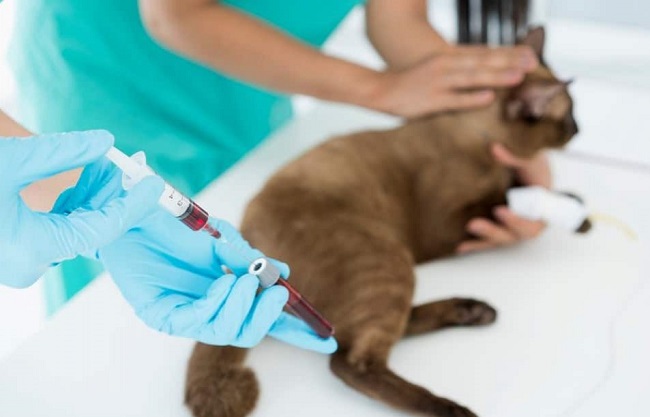Regular vet visits are an integral part of ensuring a healthy life for our feline friends. One of the most essential procedures during these visits is bloodwork.
It gives vets valuable insights into a cat’s health status, helping to detect potential issues early. But what does bloodwork for cats cost?
This article aims to shed light on this subject, outlining the types of blood tests, the factors that affect their costs, and why they are worth the investment. Now let’s find out what is the cost of bloodwork for cats.

The Importance of Bloodwork for Cats
Bloodwork plays a crucial role in preventive veterinary medicine. It can reveal the functioning of a cat’s organ systems, detect infections, and identify conditions such as diabetes, kidney disease, or thyroid issues.
Read Also:
Early detection through bloodwork allows for timely treatment, improving the cat’s prognosis and quality of life.
Types of Blood Tests for Cats and Their Costs
Several types of blood tests can be performed on cats, with costs varying based on the complexity and specificity of the tests. Here’s an overview:
Complete Blood Count (CBC): This basic test measures different components of the blood, including red and white blood cells and platelets. It helps diagnose conditions like anemia, infections, and blood disorders. The average cost ranges from $50 to $100.
Blood Chemistry Panel: This test checks organ function, electrolyte levels, and more. It’s useful in diagnosing diseases such as kidney disease or diabetes. Costs for a comprehensive panel can range from $100 to $200.
Thyroid Testing: Hyperthyroidism is a common issue in older cats, and a specific blood test can detect it. Thyroid tests can cost anywhere from $50 to $150.
Feline Leukemia (FeLV) and Feline Immunodeficiency Virus (FIV) Tests: These blood tests check for these specific viral infections, and the costs can range from $50 to $150.
Factors Affecting the Cost of Bloodwork
The cost of cat bloodwork can vary based on several factors:
Geographical Location: Prices can be higher in areas with a higher cost of living.
Type of Veterinary Practice: Specialty or emergency clinics may charge more than regular vet practices.
Specific Tests Needed: More specific tests or panels cost more than basic tests.
Frequency: Regular screenings may be bundled and cost less than one-time or emergency tests.
Age and Health of the Cat: Older cats or those with chronic conditions may require more frequent and comprehensive testing, raising costs.
Investing in Your Cat’s Health: Is the Cost Worth It?
While the cost of bloodwork may seem high, it’s an investment in your cat’s health and well-being.
Regular bloodwork allows for early detection of diseases, which can result in lower long-term healthcare costs and a healthier, happier life for your pet. Additionally, knowing your cat’s health status can provide peace of mind.
Read Also:
Conclusion
Bloodwork is a key component of feline healthcare, despite the associated costs. By understanding what influences these costs, you can better plan for your pet’s health needs.
Remember, the aim is to ensure the long-term well-being of your beloved feline companion, and preventive care like bloodwork plays a crucial role in achieving this goal.
























